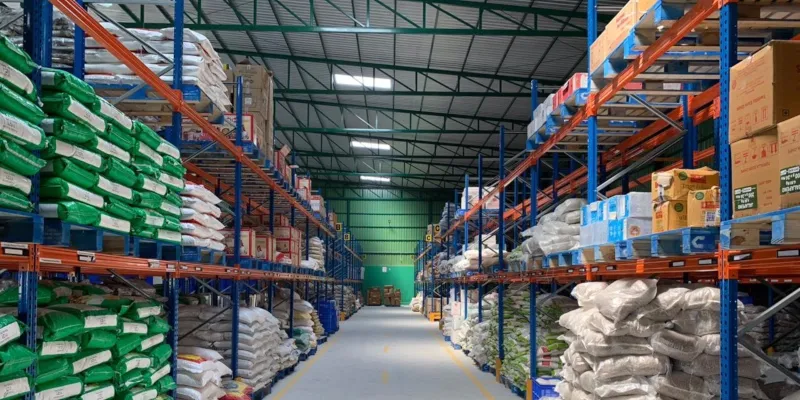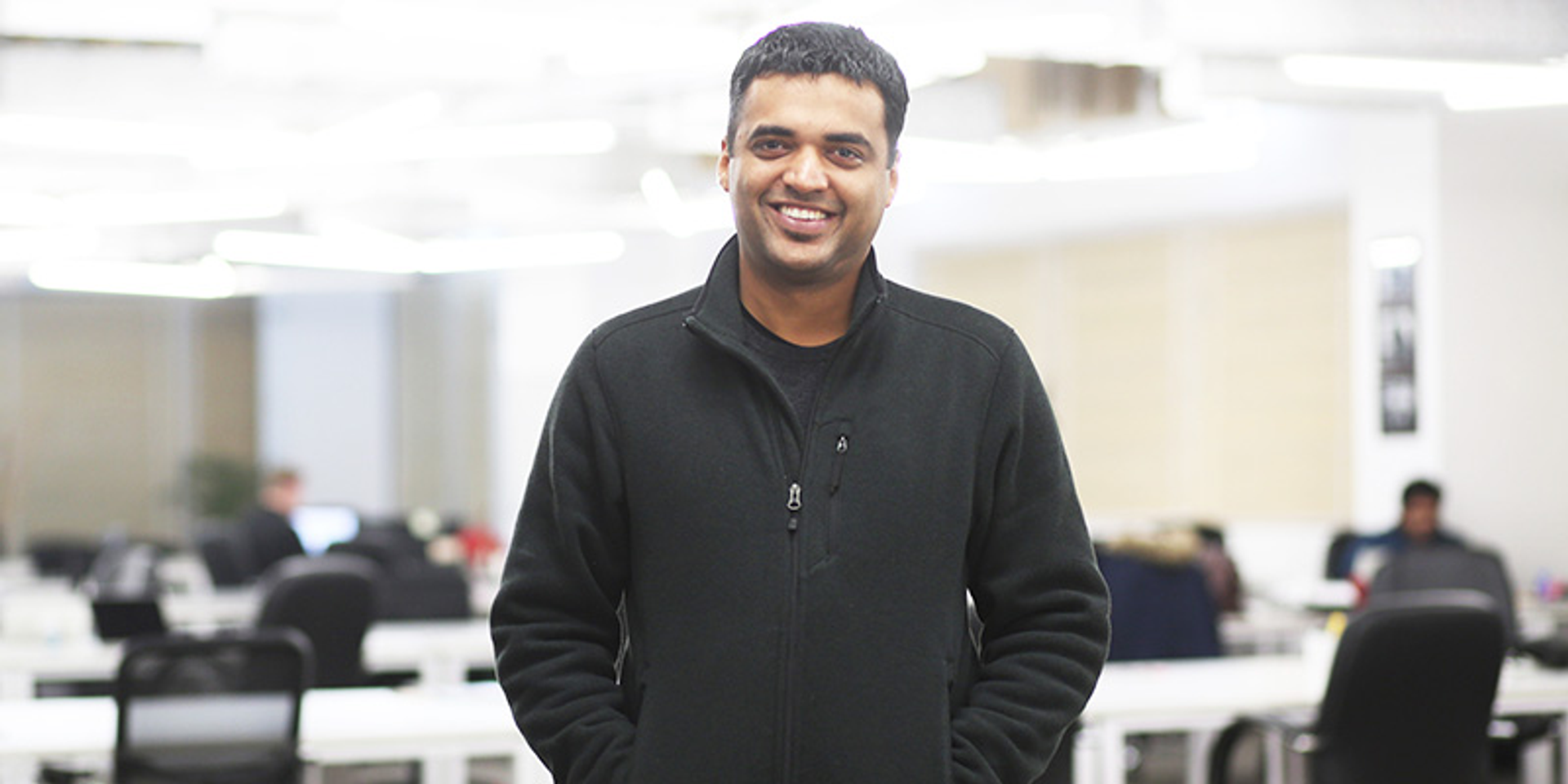Humility, hunger and humour: the trademarks of Deepinder Goyal, now CEO of Rs. 1 Lakh Cr-valued Zomato
With Zomato’s stellar debut on the bourses, Deepinder Goyal, IIT Delhi alumnus and foodtech entrepreneur, who went from leading foodies to their destination to bringing food to their doorsteps, is now the CEO of a Rs 1 lakh crore company.
Deepinder Goyal has always had this hunger -- a hunger to solve consumer problems at scale and by virtue of that, be the first at it.
From scanning restaurant menus and listing them to building a category creating foodtech major, Deepinder has no doubt been a pioneer in the startup ecosystem and India’s highly under-penetrated food services industry, which is expected to grow to $110 billion by 2025.
Today, 13 years after he first launched his food delivery business, Deepi -- as he is fondly referred to by his team -- has successfully led the first major IPO by a foodtech startup in India, heralding a new era for Indian startup-tech IPOs and for India’s growing foodtech industry.

Pic Credit: Zomato
On the morning of Zomato’s stellar listing on the bourses, the ever-measured and ever-‘hungry’ Deepinder wrote: “Today is a big day for us. A new Day Zero.”
Indeed, there have been many ‘Day Zeros’ in Deepinder’s 13-year-long journey as an entrepreneur and leader at the helm of a company that now caters to an average 32 million monthly active users with nearly 7 million monthly transacting users.

The first such ‘Day Zero’ began with a simple mission: “to elevate the restaurant experience”. How that changed to “better food for more people” over the years is a story in itself. The entrepreneur who ushered in a new era in foodtech was transforming “how people eat” to “what people eat.”
To be clear, Deepinder never really lost sight of the big picture. Whether it was spotting opportunities in new markets and verticals, leading in a crisis, acting decisively on the issues that matter, or finding ways to give back to the ecosystem and the community, Deepinder has proven to be relentless.
For example, in 2018, he quickly realised that control of supply is key, and that’s how Bengaluru-based WOTU caught his attention. Acquiring it that same year, Zomato rebranded it as its own B2B foodtech vertical Hyperpure.

Hyperpure
He remarked at the time,
“If you want to get more people to eat outside, it means the restaurants need to have better quality food. And that can be determined only by the quality of the raw materials.”
That year, 2018, was significant in many ways. It saw Pankaj Chaddha, Zomato’s co-founder, leave the foodtech company after a long association with Deepinder. Then came the controversy when one of its food delivery agents was caught consuming food out of its boxed orders.
A year later, a Twitter user tweeted to Zomato saying they allocated a non-Hindu rider for his food. True to its characteristic style, the company responded “Food doesn’t have a religion. It is a religion.”
For Deepinder though, these ups and downs are a given. “It’s a constant cycle; the cycle builds character - for you and the organisation.”
After Pankaj exited, between 2019 and 2021, Zomato elevated three core team members as co-founders -- Gaurav Gupta (2019), Mohit Gupta (2020) and Akriti Chopra (2021) -- with Deepinder and Gunjan Patidar.
Gender diversity: a 'baseline’ metric
Long before Akriti’s elevation as co-founder, Deepinder had made it clear the startup would go all out in promoting gender diversity and more women leaders in the company. “It is not its North Star — it is, in fact, a baseline,” he had said, a principle not just reserved for the top echelons of the company.
In June this year, Zomato took its first step towards increasing the participation of women delivery partners in its fleet. “To begin with, we have set ourselves a goal of reaching 10 percent participation by the end of 2021 starting with Bengaluru, Hyderabad, and Pune,” Deepinder wrote in a blog post.
The buck doesn’t stop there. Zomato also added self-defence training to its onboarding process and made it mandatory for all women delivery partners to attend. To prioritise the company’s women delivery partners' safety, it also made late evening deliveries contactless by default.
A little bit of humour, humility, hunger
As someone who has largely eschewed public or media interactions, Deepinder’s enthusiasm is often on display in his tweets and the rare interviews he has done.
In one such interaction with YourStory’s Shradha Sharma in 2017, when asked about his “rumoured” hiring strategy, he laughed and retorted, “What’s wrong with poaching people? I am very shameless about it. If someone wants to leave his/her company, why should it be my problem? If you want to call people at Zomato, please go ahead and call.”

Deepinder Goyal, Founder, Zomato
Four years later, not much had changed. In April 2021, the quirky entrepreneur took to Twitter to tweet to no less than the Mumbai Police about rival brand Swiggy functioning post 8:00 pm amidst Maharashtra’s curfew-like restrictions.
Asking for clarification, Deepinder tweeted: "Zomato is prepared to provide the essential food delivery service post 8pm in Mumbai, but we are not doing so because we are abiding by the letter of the law. I see our competition is continuing to operate post 8pm. I urge Mumbai Police to please clarify the way forward here." Mumbai Police did respond, and Deepinder, gracious as ever, sent a thank you note.
More recently still, on the day Zomato IPO opened up, the founder was seen tweeting about ordering a triple breakfast as a stress buster. Understandably, as going public is stressful for any founder, and one can never be 100 percent sure on how the investors are going to react.
But earlier today, on a day when Zomato’s market capitalisation surged to Rs 1 lakh crore, Deepinder, in his true matter-of-fact style, tweeted,
“The future looks exciting. I don’t know whether we will succeed or fail -- we will surely, like always, give it our best.”
Indeed, that same deadly combination of hunger and humility will, no doubt, continue to be the hallmark of Deepinder’s story -- as he moves from being the CEO of India’s first tech unicorn, to IPO, to helming a Rs. 1 lakh crore Made in India enterprise.
With inputs from Meha Agarwal and Sindhu Kashyaap
Edited by Tenzin Pema







